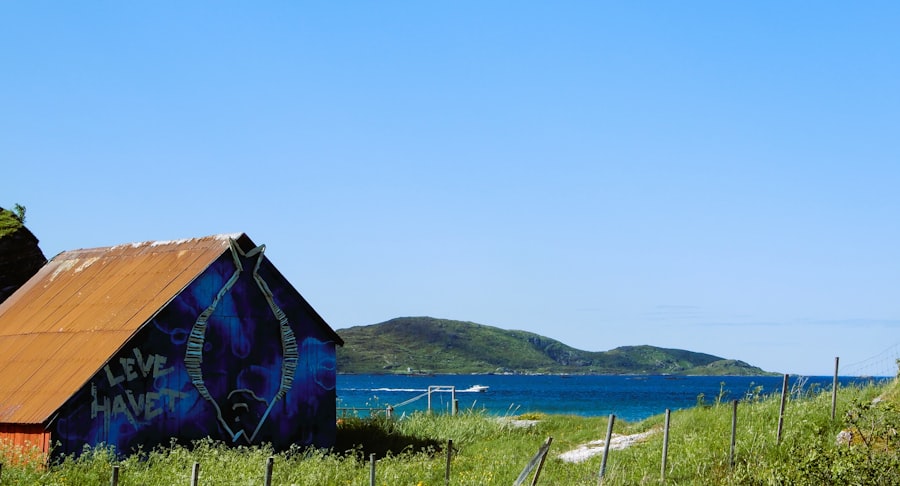The Norwegian school system is renowned for its progressive approach to education, emphasising inclusivity, creativity, and critical thinking. It is structured in a way that promotes lifelong learning, ensuring that students not only acquire knowledge but also develop essential skills for their future. The system is divided into several key stages, each designed to cater to the developmental needs of children and young adults.
From early childhood education to higher education, Norway’s educational framework is built on the principles of equality and accessibility, making it a model for many countries around the world. In Norway, education is compulsory for children aged six to sixteen, encompassing primary and lower secondary education. The government plays a significant role in funding and regulating schools, ensuring that all children have access to quality education regardless of their socio-economic background.
This commitment to education reflects the broader values of Norwegian society, which prioritises social welfare and community support. As we delve deeper into the various components of the Norwegian school system, it becomes evident how each stage contributes to the holistic development of students. Book Your 1-Hour Relocation Strategy Session
Summary
- The Norwegian school system is known for its high quality and inclusive approach to education, with a focus on early childhood education and vocational training.
- “Barnehage” plays a crucial role in early childhood education in Norway, providing a foundation for social, emotional, and cognitive development.
- “Grunnskole” encompasses primary and lower secondary education in Norway, focusing on a broad and balanced curriculum for all students.
- Upper secondary education and vocational training offer diverse pathways for students, including academic and practical skills development.
- “Folkehøgskole” provides a unique educational experience in Norway, emphasizing personal development, social engagement, and non-formal learning opportunities.
The Importance of “Barnehage” in Early Childhood Education
“Barnehage,” or kindergarten, serves as a crucial foundation for early childhood education in Norway. It caters to children aged one to six and focuses on fostering social skills, emotional development, and cognitive growth through play-based learning. The Norwegian government recognises the importance of early childhood education and has made significant investments in this sector, ensuring that barnehager are accessible to all families.
This commitment is reflected in the high enrolment rates, with a majority of children attending some form of barnehage before they enter primary school. The curriculum in barnehage is designed to promote exploration and creativity, allowing children to learn at their own pace. Educators encourage children to engage in various activities that stimulate their imagination and curiosity, from arts and crafts to outdoor play.
This emphasis on play as a learning tool not only enhances children’s cognitive abilities but also helps them develop essential social skills, such as cooperation and communication. As a result, children who attend barnehage are often better prepared for the transition to primary school, equipped with the foundational skills necessary for academic success.
Primary and Lower Secondary Education: The “Grunnskole”

The “Grunnskole,” or compulsory school, encompasses both primary and lower secondary education in Norway, catering to students aged six to sixteen. This stage of education is characterised by a broad curriculum that includes subjects such as mathematics, science, language, social studies, and physical education. The aim is to provide students with a well-rounded education that not only imparts knowledge but also encourages critical thinking and problem-solving skills.
One of the defining features of grunnskole is its focus on inclusivity. Schools are required to accommodate students with diverse learning needs, ensuring that every child receives the support necessary to thrive academically. Teachers are trained to identify individual strengths and challenges, allowing them to tailor their teaching methods accordingly.
This personalised approach fosters a positive learning environment where students feel valued and motivated to succeed. Furthermore, the emphasis on collaboration among students promotes teamwork and respect for diversity, preparing them for life in a multicultural society.
Upper Secondary Education and Vocational Training
Upon completing grunnskole, students have the option to pursue upper secondary education, which lasts for three years. This stage is divided into two main tracks: general studies and vocational training. General studies prepare students for higher education by offering a more academic curriculum, while vocational training equips them with practical skills for specific careers.
This dual approach allows students to choose a path that aligns with their interests and career aspirations. Vocational training programmes are particularly noteworthy in Norway, as they provide students with hands-on experience in various trades such as carpentry, plumbing, and healthcare. These programmes often involve partnerships with local businesses, allowing students to gain real-world experience while still in school.
This connection between education and industry not only enhances employability but also addresses the skills gap in the labour market. As a result, many students who complete vocational training find themselves well-prepared for immediate employment upon graduation.
The Role of “Folkehøgskole” in Norwegian Education
“Folkehøgskole,” or folk high schools, play a unique role in the Norwegian education landscape by offering non-formal education for young adults aged sixteen and above. These schools focus on personal development rather than traditional academic qualifications, providing a diverse range of courses that cater to various interests such as arts, music, outdoor activities, and social sciences. The philosophy behind folkehøgskole is rooted in the belief that education should be an enriching experience that fosters personal growth and community engagement.
Attending folkehøgskole allows students to explore their passions in a supportive environment while also developing important life skills such as leadership, teamwork, and critical thinking. The schools often encourage students to participate in group projects and community service initiatives, fostering a sense of social responsibility. Moreover, folkehøgskole serves as a bridge for many students who may not be ready for higher education immediately after upper secondary school, providing them with valuable experiences that can inform their future educational and career choices.
Higher Education: Universities and Colleges

Norway boasts a robust higher education system that includes universities and specialised colleges offering a wide array of programmes across various fields of study. Higher education is characterised by its emphasis on research and innovation, with many institutions actively contributing to advancements in science, technology, and the arts. Norwegian universities are known for their high academic standards and commitment to fostering critical thinking among students.
One of the distinguishing features of higher education in Norway is its accessibility; public universities do not charge tuition fees for both domestic and international students. This policy reflects the country’s commitment to providing equal opportunities for all individuals seeking higher education. Additionally, many universities offer programmes taught in English, attracting a diverse student body from around the globe.
This multicultural environment enriches the educational experience and prepares students for an increasingly globalised workforce.
The Norwegian Grading System
The Norwegian grading system is designed to provide clear feedback on student performance while promoting a growth mindset. Grades range from A to F, with A being the highest achievement and E representing a passing grade. A grade of F indicates failure.
This system encourages students to strive for excellence while also recognising that learning is a process that involves both successes and setbacks. In addition to traditional letter grades, many schools incorporate formative assessments that focus on individual progress rather than solely on final outcomes. This approach allows teachers to provide constructive feedback throughout the learning process, helping students identify areas for improvement and set achievable goals.
By fostering a culture of continuous learning and self-reflection, the Norwegian grading system aims to motivate students to take ownership of their educational journey.
Special Education and Support Services
Norway places great importance on providing special education services to ensure that all students have access to quality education tailored to their individual needs. The Education Act mandates that schools must accommodate students with disabilities or learning difficulties by offering specialised support services. This commitment reflects Norway’s broader values of inclusivity and equality.
Support services may include individualised education plans (IEPs), additional tutoring, or access to specialised staff such as educational psychologists or speech therapists. Schools work closely with parents and external agencies to create an environment where every student can thrive academically and socially. By prioritising special education services, Norway aims to empower all learners, ensuring that they have the opportunity to reach their full potential.
Multicultural Education in Norway
As Norway becomes increasingly multicultural due to immigration and globalisation, the importance of multicultural education has gained prominence within the school system. Educators are encouraged to create inclusive classrooms that celebrate diversity while promoting understanding and respect among students from different cultural backgrounds. This approach not only enriches the educational experience but also prepares students for life in a diverse society.
Multicultural education in Norway involves integrating diverse perspectives into the curriculum while also addressing issues related to discrimination and inequality. Schools often organise cultural events and activities that allow students to share their heritage and learn from one another’s experiences. By fostering an environment of acceptance and appreciation for diversity, Norwegian schools aim to cultivate global citizens who are equipped to navigate an interconnected world.
The Role of Parents and Community in the Norwegian School System
Parents play an integral role in the Norwegian school system, actively participating in their children’s education through various channels such as parent-teacher associations (PTAs) and school boards. This collaborative approach fosters strong partnerships between families and schools, ensuring that parents are informed about their children’s progress while also providing valuable input into school policies and practices. Community involvement extends beyond parental engagement; local organisations often collaborate with schools to enhance educational opportunities for students.
Initiatives such as mentorship programmes or after-school activities provide additional support while fostering a sense of belonging within the community. By encouraging active participation from both parents and community members, Norway’s educational framework promotes a holistic approach that benefits students academically and socially.
Challenges and Reforms in the Norwegian Education System
Despite its many strengths, the Norwegian education system faces several challenges that necessitate ongoing reforms. Issues such as disparities in educational outcomes between urban and rural areas, as well as between different socio-economic groups, highlight the need for targeted interventions aimed at promoting equity within the system. Additionally, there are concerns regarding student mental health and well-being amid increasing academic pressures.
In response to these challenges, policymakers are exploring various reforms aimed at enhancing educational quality while addressing inequalities. Initiatives may include increased funding for under-resourced schools or implementing new teaching methodologies that prioritise student engagement and well-being. As Norway continues to adapt its educational framework in response to changing societal needs, it remains committed to fostering an inclusive environment where every student has the opportunity to succeed.
In conclusion, navigating the complexities of the Norwegian school system can be daunting for newcomers or those considering relocation to Norway. To ease this transition and provide tailored guidance on educational pathways available in Norway, we invite you to take advantage of our One-Hour Strategy Session with the Norway Relocation Group. Our experienced consultants will work closely with you to address your specific needs and concerns regarding your family’s educational journey in Norway.
Whether you seek insights into early childhood education options or guidance on higher education pathways, our dedicated team is here to support you every step of the way. Don’t hesitate—reach out today for your personalised session!

